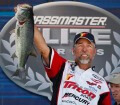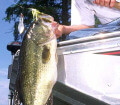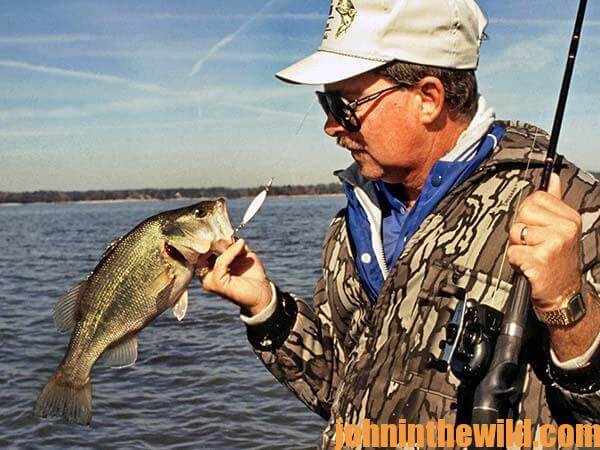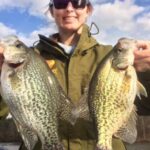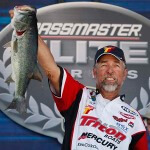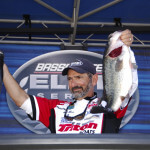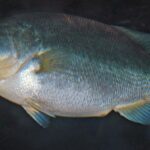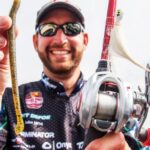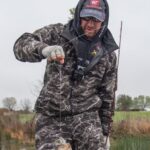John’s Note: If you live in a state where the lakes remain frozen in February, these techniques for catching February bass and crappie certainly won’t work. But if your state has open water during the month of February, the size and the number of bass and crappie you take may surprise you.
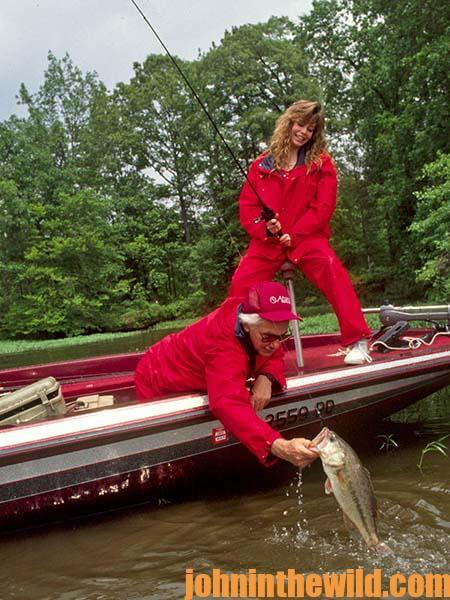 Charlie Ingram, who loves to bass fish on Alabama’s Lake Eufaula, taught me this tactic some years ago.
Charlie Ingram, who loves to bass fish on Alabama’s Lake Eufaula, taught me this tactic some years ago.
“I’ve used it during bad, cold weather in February to have a great day of fishing, take home fish for the skillet and still catch and release plenty of bass,” Ingram told me. “Pretend you’re putting a teaspoon down in the bottom of a clear iced tea glass. You put the spoon in slowly, move it to the bottom of the glass, stir the sugar (if you like sweet tea) and then slowly remove the spoon. That same slow, dipping motion catches big bass in deep cover on cold February days.”
Ingram fishes deep brush on river and creek channels using 20-pound-test line, a 3/4-ounce Hopkins jigging spoon and a finesse tactic.
“Take a file, and knock the point off each hook on your treble hook,” Ingram advises. “By passing the file once across the point of the hook, you’ll dull the point, so it is flat instead of sharp and pointed. Dulling the point serves two purposes. First, the dull hook keeps your treble hook from getting hung in the brush. Second, the point of the hook punches a hole through the fish’s mouth instead of slicing a hole. A fish will be less likely to shake the heavy spoon from its mouth once you get it hooked.”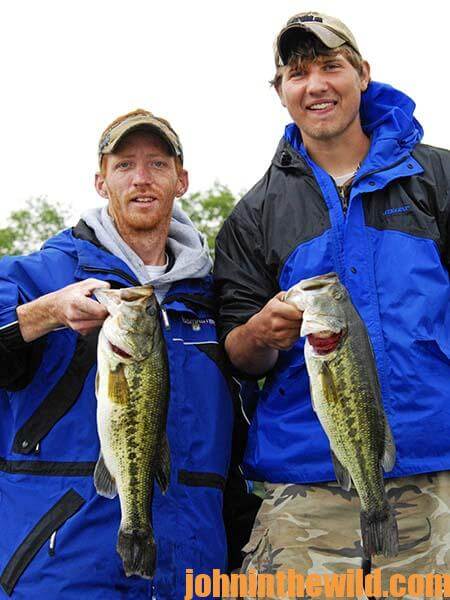
Ingram lowers his big 3/4-ounce jigging spoon with the dull hooks down through the center of the brush pile by fishing vertically. He wants the spoon to go down as slowly as possible. Then when he touches brush or cover, he can lower the spoon through the cover all the way to the bottom. Anytime he feels a thump on the line, he doesn’t set the hook because he realizes he’s probably hit a sunken limb or a log. “I let the bass pull down the rod,” Ingram mentions. “If I feel what I believe to be a bite while the spoon is going to the bottom, I’ll stop the spoon and slowly work it through the cover. If the thump is a bass, the bass will pull down my rod.”
Once Ingram gets his spoon to the bottom, he lifts and lowers it like a teaspoon, working it slowly up and through the limbs in the cover. If the hooks on the spoon come in contact with the wood, he simply shakes the heavy spoon, and the spoon will back the hooks out of the wood. According to Ingram, “Because the spoon moves so slowly, it appears to the bass to be a shad that’s about to die and it presents an easy meal for both the crappie and the bass that are holding in that deep water brush.” You’ve heard Ingram right – crappie and bass.
You can catch both crappie and bass when you double down with this teaspoon tactic. “I put the crappie in one livewell, and the bass in another livewell,” Ingram admits. “When I get back to the docks, I show off my bass and then release them. But I never open the lid of my second livewell because it has the crappie in it. The size of the crappie I catch on a 3/4-ounce jigging spoon is much bigger than the size of crappie most crappie fishermen take when they fish in February.”
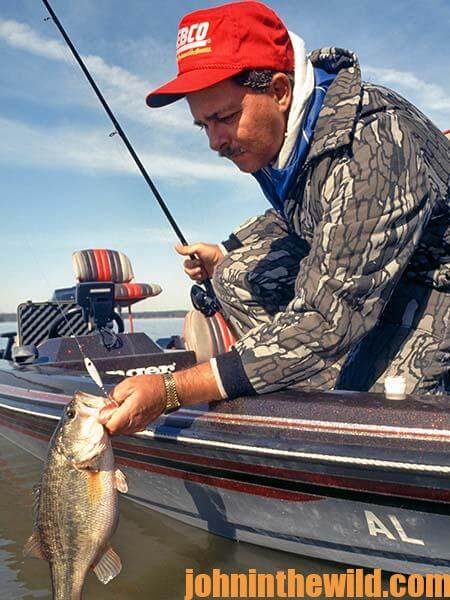 To learn more about bass fishing, get John E. Phillips’ Kindle ebooks, “How to Bass Fish Like a Pro,” “How to Win a Bass Tournament” and “Catch the Most and Biggest Bass in Any Lake: 18 Pro Fishermen’s Best Tactics.” Click here to get these books.
To learn more about bass fishing, get John E. Phillips’ Kindle ebooks, “How to Bass Fish Like a Pro,” “How to Win a Bass Tournament” and “Catch the Most and Biggest Bass in Any Lake: 18 Pro Fishermen’s Best Tactics.” Click here to get these books.
Share this page with a friend!
About the Author
John Phillips, winner of the 2012 Homer Circle Fishing Award for outstanding fishing writer by the American Sportfishing Association (ASA) and the Professional Outdoor Media Association (POMA), the 2008 Crossbow Communicator of the year and the 2007 Legendary Communicator chosen for induction into the National Fresh Water Hall of Fame, is a freelance writer (over 6,000 magazine articles for about 100 magazines and several thousand newspaper columns published), magazine editor, photographer for print media as well as industry catalogues (over 25,000 photos published), lecturer, outdoor consultant, marketing consultant, book author and daily internet content provider with an overview of the outdoors. Click here for more information and a list of all the books available from John E. Phillips.

